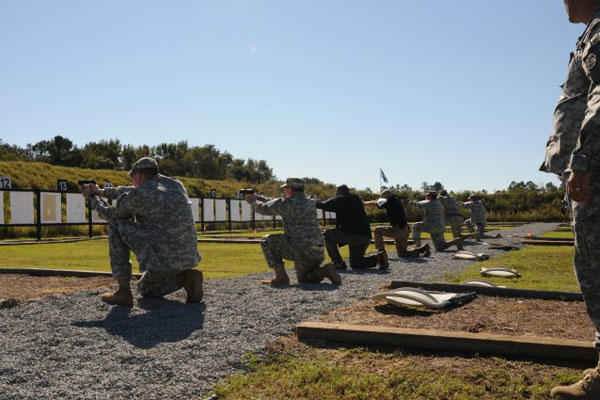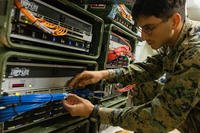The chief of the Army Reserve said Thursday his component is "falling behind" the National Guard and active force in having up-to-date equipment.
Lt. Gen. Jeffrey Talley told an audience that his portion of the Army's equipment modernization budget is less than half of what it was prior to the terrorist attacks of Sept. 11, 2001.
"Pre-9/11, the Army Reserve had about six percent of the equipment-modernization budget; I am less than three percent today," he told an audience at a breakfast hosted by the Association of the United States Army, an advocacy group based in Arlington, Virginia.
"We are falling behind the other two components in equipment modernization," he said.
This is important, Talley said, when talking about mission command systems.
"I need to plug and play with our Army National Guard and our regular Army, and I can't because 75 percent of all our mission command systems aren't interoperable because of a lack of modernization, whether it's hardware, software -- actually it's a combination of both," he said.
"The good news is the Army staff gets it; I am on the Army staff, so my peers get it, the chief of staff gets it and people are working hard to try to help us resolve some of those challenges," he added.
Talley also said that about one third of the Reserve needs more training than the mandatory 39 training days a year to support the active force and National Guard in a major contingency operation.
"I must have more training days to generate higher levels of readiness or the Army will fail in a mission," he said. "Not for everyone, but for that portion of the force that I must have at a higher level of readiness, and I am going to define those as set-the-theater, early-entry forces."
Chief of Staff of the Army Gen. Mark Milley has been considering a similar proposal for the National Guard.
Increasing the training days for a portion of the Reserves would require more operational-tempo funding, Talley said.
"I don't necessarily think we absolutely across the entire Army Reserve want to say ‘it's no longer 39 training days, it's 45 days,' but there are certain units that will need more training time," he said. "The short answer is I do need more training days, but I don't need it for the entire force."
Talley admitted he is concerned that this will create the perception in the Army Reserve that there are "have and have-not units."
"I don't want people to say ‘I don't want to go to this unit or this unit because they are kind of a second-class unit in terms of how we are perceived and how we are resourced,'" he said.
-- Matthew Cox can be reached at matthew.cox@military.com.































